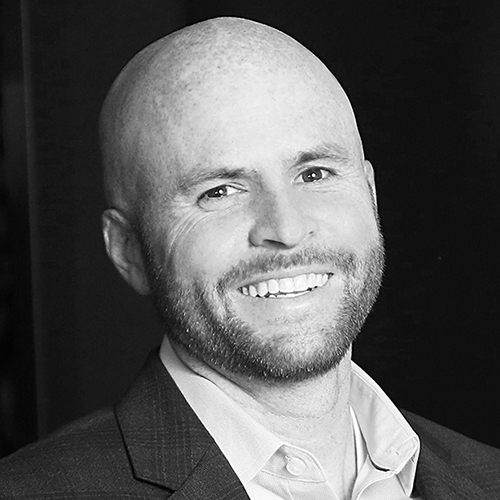Most in-house attorneys operate within a certain industry and learn the legal needs thereof. For Adam Fliss, the deputy general counsel of TPG Capital, that industry is investment, and those investments are made in a myriad of industries.
The sheer number and scale of TPG Capital’s investments makes having a strong in-house legal team essential. Fliss is pushing to ensure brand consistency across TPG’s outside attorneys to create reliability and drive business.
TPG is one of the largest private investment firms in the world, with more than $70 billion of assets under management. The portfolio company operates a number of different investment platforms in areas such as
biotechnology, real estate, and renewable technology. TPG Capital, which has approximately $40 billion of assets under management and typically focuses on the acquisition or restructuring of businesses that require equity capital between $10 million and $1 billion. Unlike more specialized platforms, TPG Capital invests across a broad range of industries in the United States, Europe, Asia, Australia, and Latin America.
Fliss acts as the company’s senior legal counsel in North America and Europe. Working in an inside legal position, especially at a private equity firm, has forced Fliss to take on a number of roles and responsibilities that he wouldn’t encounter at a law firm.
“It’s a risk management role,” he says. “It’s risk in investing; it’s risk in our portfolio of companies; it’s risk at our firm. It’s a unique role and something that law firm life can’t prepare someone for—both the breadth and the pace.”
Fliss oversees legal issues that arise with any of TPG Capital’s approximately fifty active portfolio companies. Since TPG Capital invests across a broad range of industries—such as retail, health care, media, telecom, and energy—Fliss is exposed to the unique legal issues that come with each.
He spends time working with “sector teams” within the company, which focus on different industries, to help them determine the legal risks that might exist in their investment plans. They then analyze the best way to manage those risks. “The fun part is that we get to be on the cutting edge of transactions that have never been done before,” he says.
One of Fliss’s major initiatives is to ensure the consistency of risk profiles across all acquisitions and transactions. For example, he might make sure a portfolio would have a balance of both high-risk and low-risk companies, or that risk is not concentrated in specific areas, such as geography, sector, or particular company. Fliss also works to develop close relationships with outside counsel to educate them on what TPG Capital considers tolerable risk.
One of the most challenging aspects of Fliss’s work is monitoring government regulations and the enforcement environment, which Fliss calls dynamic and fast evolving. Fliss says he is constantly following government cases, as well as speeches by government leaders and experts, to be aware of changes in the regulatory landscape.
“We’re paying a lot of attention to what regulators are doing, whether that’s the Federal Trade Commission, European antitrust authorities, the Chinese antitrust authorities, or healthcare regulators,” he says. “I think [regulation] is the area of the biggest legal risk to our investment business.”
Fliss’s job isn’t only management and strategy; much of his day consists of typical legal legwork, such as overseeing the company’s complex transactions, including acquisitions, dispositions, equity investments, and recapitalizations. He says in any given year, he typically deals with ten to twelve acquisition transactions and five to ten disposition transactions. “My role is leading the legal structuring, negotiation, analysis, and execution with respect to those matters,” he says.
“The fun part is that we get to be on the cutting edge of transactions that have never been done before.”
This also includes ensuring that the company’s divestments run without a hitch. Fliss says 2015 was a seller’s market and a big year of exits for TPG Capital. The company strives to produce 20 percent annual rates of return.
“From the legal side, when it comes to returning capital, we have to preserve the value for our partners,” Fliss says. Through structuring and negotiation, the legal team can make sure there’s certainty of completion and value for investors in sale transactions.
Fliss says a few notable divestment deals last year were the sale of EnvisionRx to Rite Aid in June, and the sale of SunGard to Fidelity National Information Services in August for $9.1 billion.
From a legal perspective, Fliss says the most challenging project was hammering out the details of a partnership with Ares Management that would give both companies equal ownership of American Tire Distributors.
The toughest part of the deal, from Fliss’s perspective, was figuring out how to mesh both companies’ investment horizons, with Ares as a newer investor and TPG Capital as a more historical investor. Ultimately, the deal was a success.
Though only time and the markets will tell whether 2016 is another a big year for exits for TPG Capital, Fliss says the strategy will be the same: put up good returns to make sure clients are satisfied.
While he may occasionally have trouble prioritizing his assortment of roles at TPG Capital, Fliss says he enjoys what he does. “I can’t imagine having a job with broader exposure to interesting legal issues than what I currently have,” he says.


